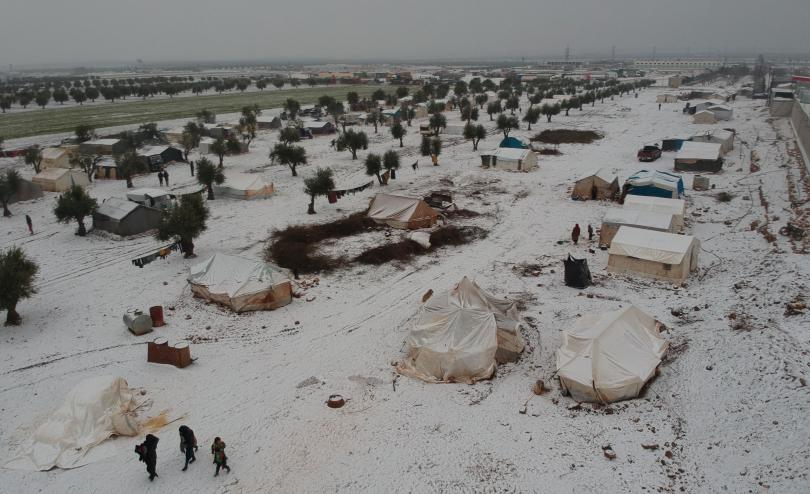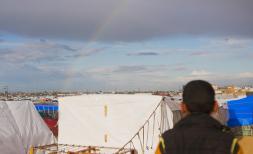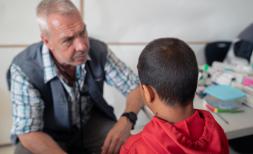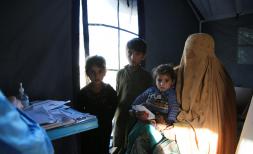Syria: Children dying in freezing conditions in camps as more than a quarter of Idlib displaced

As many as seven children – including one baby only seven months old – have died from freezing temperatures and horrific living conditions in camps, Save the Children’s partners in Idlib, Hurras Network, have confirmed.
An aid worker from Save the Children’s partner, Hurras Network, said:
“Two sisters, aged four and three, died when their tent burned down because their heater was unsafe. Their pregnant mother sustained burns on her body.
“A 14-year-old boy who was living with his family of seven in a small tent succumbed to freezing temperatures.”
Hurras Network also recorded the deaths of two girls aged ten and three, who died from asphyxiation from their heating equipment, alongside a one- year-old girl and a seven-month-old boy who died from cardiac arrest during the severe cold.
Since December 1st 2019, as many as 450,000 children have been forced to flee their homes in Idlib, Syria, due to a brutal escalation in the ongoing conflict. The region has seen more than a quarter of its population displaced.*
Mira, a 13 year-old girl displaced to a camp, said:
“I did not like the snow in the camp because it was really cold and both my sister and I got sick. Part of our tent collapsed because of the weight of the snow on it. I did not have clothes or anything to keep me warm in our tent. I want shoes to play in the snow like my friends.”
Sonia Khush, Save the Children’s Syria Country Director, said:
“As more civilians desperately seek safety on Syria’s border with Turkey, we’re worried that the death toll will increase given the absolutely inhumane living conditions that women and children are finding themselves in, with sub-zero temperatures, no roof over their heads and no warm clothes. Even when they do manage to find a tent, a heater and a mattress, they risk being asphyxiated by their heating equipment or seeing their shelter burn down.”
Over the course of just three days earlier this month nearly 145,000 people fled their homes to rush to the Turkish border.*** More than 80,000 people are now living in open fields covered in snow, exposed to northern Syria’s freezing winter.
The vast majority of people displaced are children and women, who have been forced to flee with just the clothes they are wearing. To keep warm, they resort to burning plastic and other combustible materials, when they can’t find wood.
Save the Children is calling on all warring parties to respect international humanitarian and human rights laws and to protect schools, hospitals and other vital civilian infrastructure from attacks. Particular effort should be given to protecting children who are extremely vulnerable to the impact of explosive weapons.
Names have been changed for safety reasons.
Spokespeople are available. To arrange an interview please contact Joelle Bassoul in Beirut joelle.bassoul@savethechildren.org 00961 81 600696 or Davina Hagan in London 0044 7732 601762. During out of office hours, please contact the 24-hour press office in London media@savethechildren.org.uk 0044 7831 650 409.
Notes to editors:
* Idlib’s population is three million. According to the United Nations, 900,000 people have been displaced since December 1st 2019. Save the Children estimates that at least half of these are children.
** More than 40% of the schools and education facilities in Idlib are either damaged, destroyed or out of service for proximity to hostilities, with the remaining classrooms recording more than 80 students per class in some areas. By the end of January, more than 3,700 teachers have also been displaced, overburdening an overstretched education system.
*** According to the UN Office for the Coordination of Humanitarian Affairs, from 9th to 12th February 2020 some 142,000 people were displaced.




